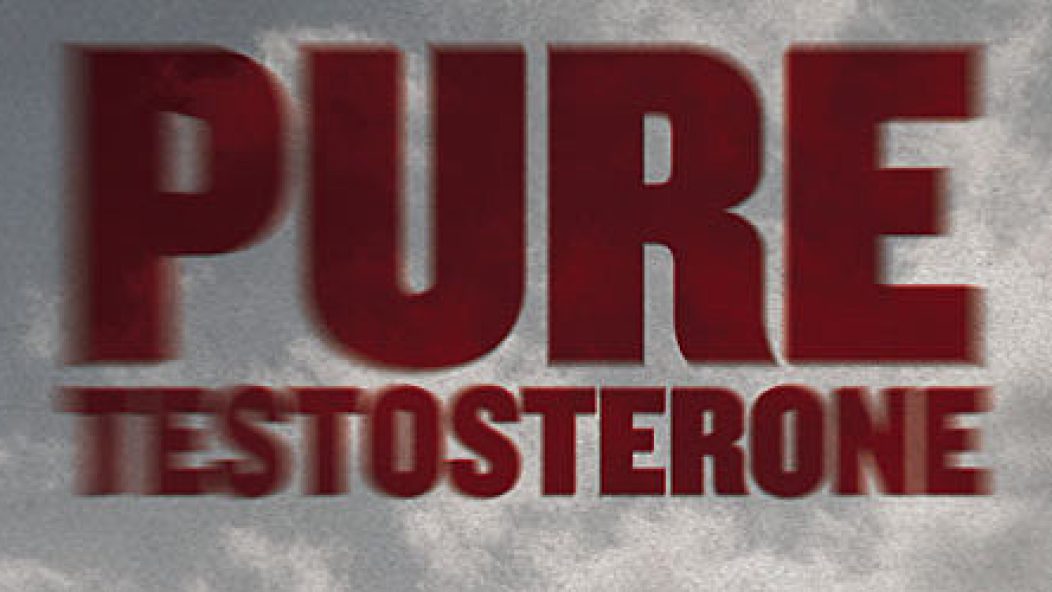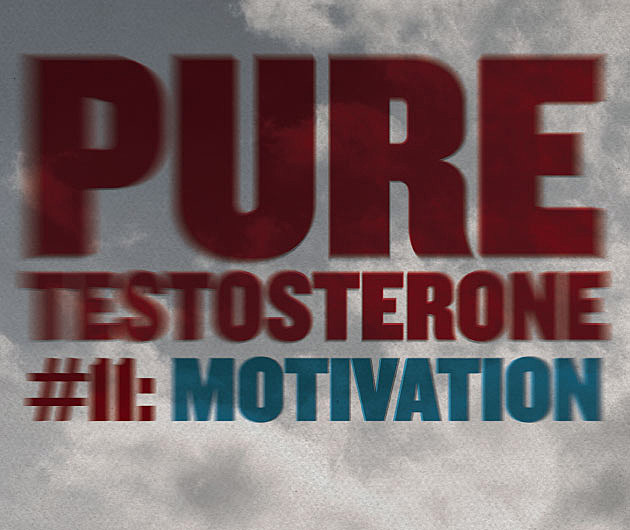
Pure Testosterone #11: Motivation
. . .
Last fall, I came across a Washington Post profile of endurance athlete Frank Fumich. The piece followed Fumich as he completed an impossible physical feat: the Virginia Triple Iron Triathlon.
Yes, you read that correctly. Fumich and 16 others subjected themselves to three consecutive Ironman triathlons. That’s 7.2 miles swimming, 78.6 miles running, and 336 miles biking, all told. Most normal humans can’t manage even one of these feats, much less all three. The notion of completing them consecutively sets the mind to reeling.
Most of the Post article is devoted to an account of Fumich’s considerable suffering (the part about his chafing wang is particularly horrifying), though the man does take a few spare breaths to reflect on his bizarre hobby. One quote in particular jumped out at me:
“Fumich firmly believes that many people can accomplish the physical side of what he does. It’s the mental discipline that sets him apart. ‘Much more physically capable people than me drop out of these all the time,’ he says. ‘They just can’t stay in the game. When they feel that bad for that long, they just give up.'”
Has there ever been such an obvious parallel for the life of the extreme metal musician?
. . .
By my lights, metal musicianship is in the same class of activities as endurance sports. In both cases, practitioners endure hours of unpleasantness in pursuit of some longer-term catharsis. (Fumich says “The actual running of it, I don’t enjoy it. I don’t enjoy the training either.”) It’s not about strength of muscle; it’s about strength of will.
When writers—myself included—describe metal bands, they tend to use metaphors of strength: “brutal”, “crushing”, “pummeling”, “massive”, and such. Even playing really fast invokes power-related descriptors: virtuosos “rip” and “shred”.
But the actual practice of playing metal requires as much fortitude as it does strength or talent. You spend hour upon hour with a metronome. You drop thousands of hard-earned dollars on gear. You search ceaselessly for new techniques, new tricks. You endure the stigma that comes from explaining what ‘deathgrind’ is to non-metal acquaintances and family members. If you’re a touring underground musician, you survive in cramped, uncomfortable quarters for much of the year.
These things are hard to do, and they offer few rewards beyond a deep sense of satisfaction. Nonetheless, anyone who is sufficiently determined to play metal can do them. Not everyone will turn into an Akerfeldt-style virtuoso, of course, but most can become competent with time and diligence.
Certain kinds of metal even rely on physical endurance for their performance. Think of Darkthrone’s classic-era albums. Fenriz’s blastbeats aren’t complex at all, but he can keep them up for a long, long time. As any drummer can tell you, even slow blasts are tough to maintain for seven straight minutes. His stamina as a drummer reflects Darkthrone’s stamina as a band.
. . .
Endurance sports aren’t just neatly analogous to metal musicianship; they also offer rich opportunities for metal fans. Physical exertion can be deeply reflective, and it leaves your consciousness mostly unoccupied. Conveniently, many metal albums are best consumed whole and with few distractions.
I spend close to an hour most days running, biking, using an elliptical machine (NOT METAL), or performing some other cardio-training exercise. I do it because I find it satisfying, and because it provides a vital contrast to my lifting regime. I also do it because I find that the cardio experience and the listening experience mutually enhance each other.
One of my favorite albums to run to is Meshuggah’s Nothing. It’s perfect for a number of reasons. Nothing is driving but detail-oriented; you can get lost in its weirdness. It’s also 58 minutes long—just enough for me to bang out eight miles. Meshuggah sounds like machines, and machines don’t get tired.
Another favorite is Cobalt’s Eater of Birds. It doesn’t relentlessly assault your ears like Nothing, but it’s just as intense. Its crescendos fill me with a barbaric urge to survive—vocalist Phil McSorley, a hard man if ever there was one, could stand in for Conan running a self-improvement seminar. I could loop the tom breakdown from “Blood Eagle Sacrifice” for an entire run and never tire of it, or of the run.
But which album works best for you depends entirely on your preferences as a fan. Flip through your collection and figure out which albums give you that sense of unbreakable endurance. The rhythms of the workout will draw attention to the rhythms of the music, and the rhythms of the music will drive you forward. Unless it’s funeral doom, in which case you’re in for a very long run indeed.
. . .











